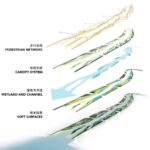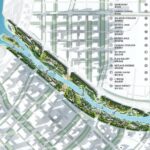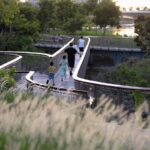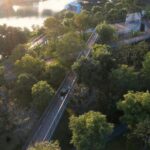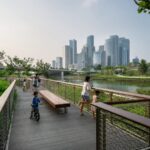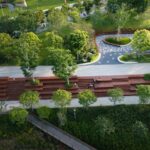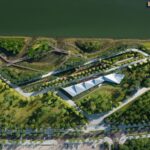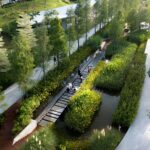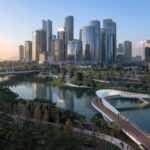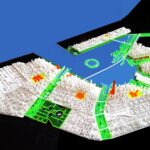Redefining Urban Landscape: The Guiwan Park Project
In 2022, Field Operations unveiled the groundbreaking Guiwan Park project in Shenzhen, China, marking a significant milestone in urban design and landscape architecture. The project received widespread acclaim, earning the prestigious Professional General Design Honor Award from the American Society of Landscape Architects (ASLA) in 2023, recognizing its bold vision and transformative impact on urban infrastructure.
Innovative Urban Landscape Infrastructure
Guiwan Park represents a paradigm shift in urban landscape infrastructure, transitioning from a hermetic canal to a vibrant green space within just two years. The project’s innovative approach garnered international recognition, positioning it as a model for waterfront cities worldwide. The multidisciplinary team behind Guiwan Park, comprising experts from diverse fields, demonstrated China’s prowess in construction and innovation, underscoring the nation’s commitment to sustainable urban development.
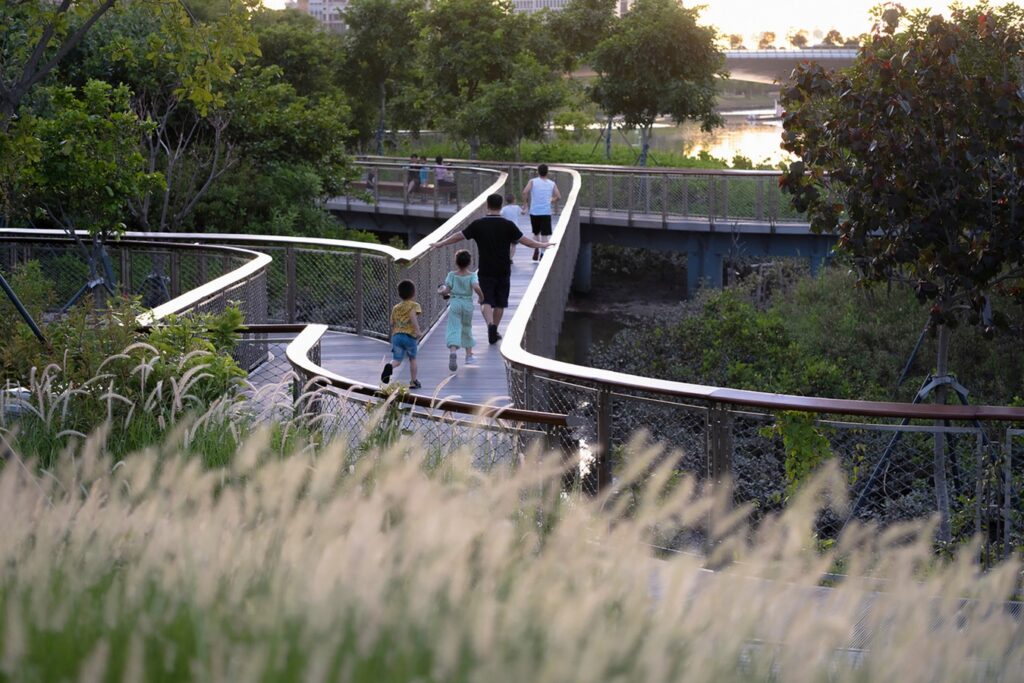
Integrating Ecology and Urban Functionality
As the first “water finger” of Qianhai Water City, Guiwan Park serves as a green core, supporting the city center while providing essential blue-green infrastructure for stormwater management, flood protection, and habitat recovery. Spanning over 452,700 square meters, the park features a seamless blend of ecological, social, and urban functions, offering spaces for sports, leisure, recreation, and nature exploration. Its unique design fosters a harmonious coexistence between natural ecology and urban vitality, creating what the architects describe as a “hyper-nature” environment.
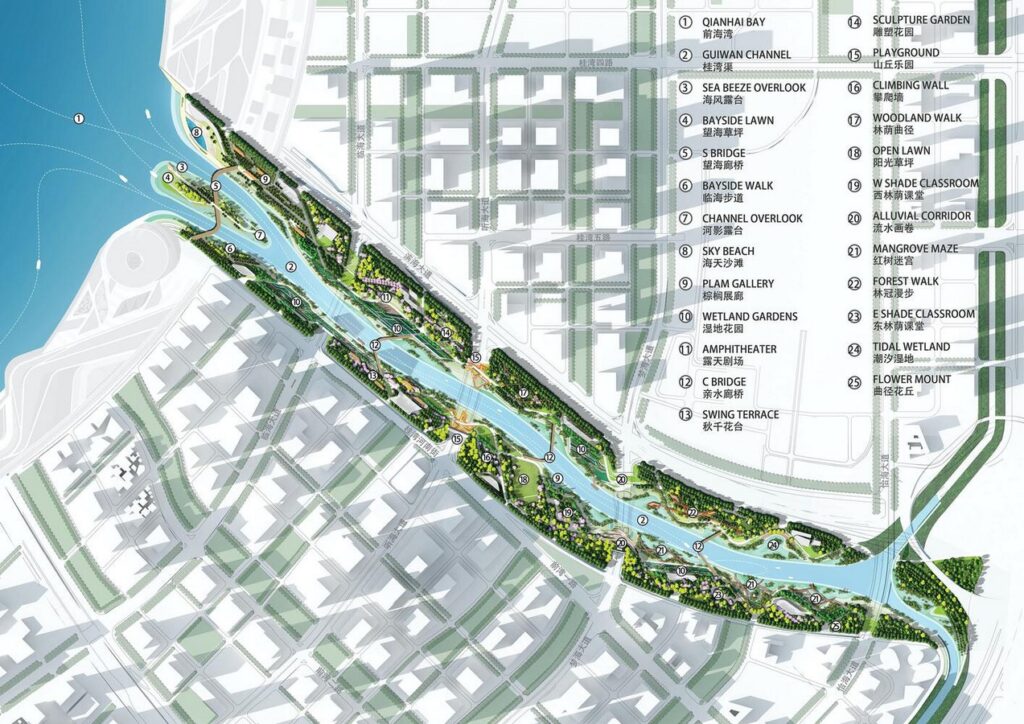
From Vision to Reality: The Evolution of Guiwan Park
Guiwan Park is a testament to the collaborative efforts of designers, engineers, and urban planners who worked tirelessly to bring the project to fruition. The park’s design reflects a deep understanding of the local context and ecological principles, with terraces accommodating steep elevation changes and innovative stormwater management strategies reducing nonpoint source pollution by 72%. The park’s biodiversity and habitat recovery efforts have led to the resurgence of native species, contributing to a healthier marine ecosystem and enhancing the park’s ecological resilience.
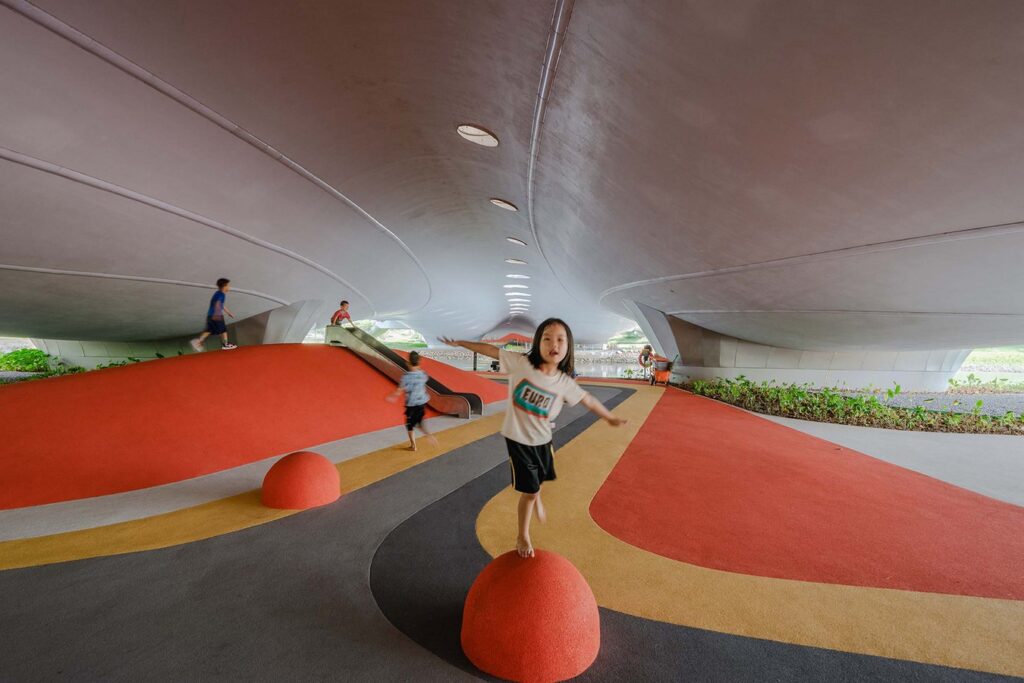
Embracing Technology for Sustainability
Guiwan Park leverages cutting-edge technology to monitor soil, irrigation, water levels, and tree conditions, enabling efficient park management and supporting ecological restoration efforts. Visitors can engage with the park through a dedicated app, which provides interactive navigation and insights into its ecological benefits, fostering greater awareness and appreciation for urban green spaces.
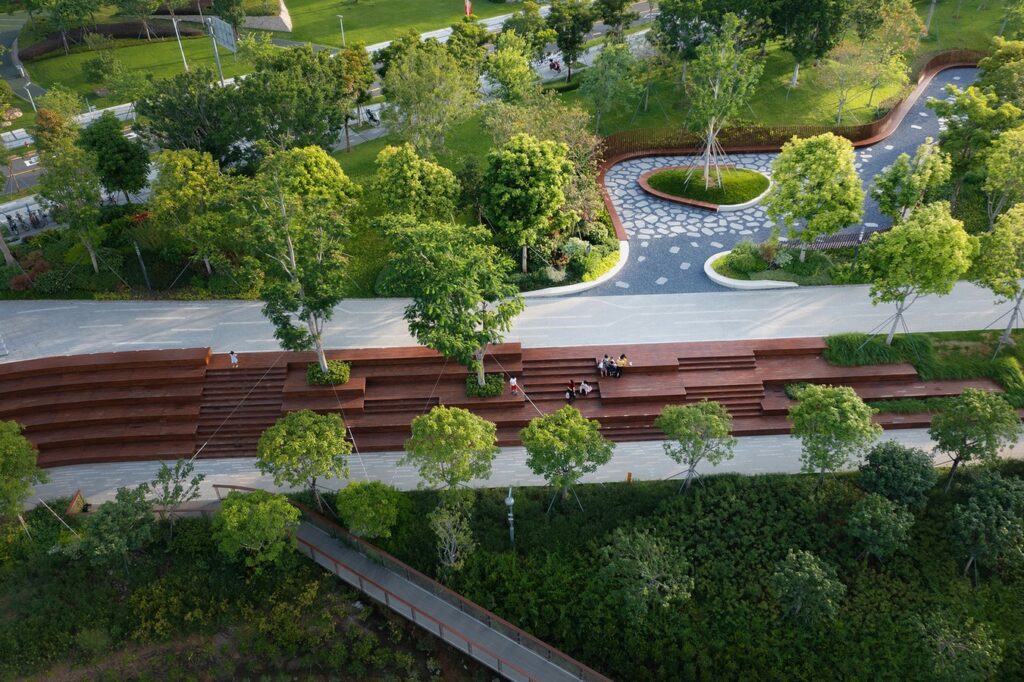
Setting a New Benchmark for Urban Design
Guiwan Park’s success underscores the transformative potential of large-scale blue-green infrastructure in addressing the challenges of climate change and urbanization. By seamlessly integrating ecological rehabilitation with social interaction, the park serves as a blueprint for resilient, sustainable cities of the future, offering restorative open spaces that enrich the lives of residents and visitors alike.

